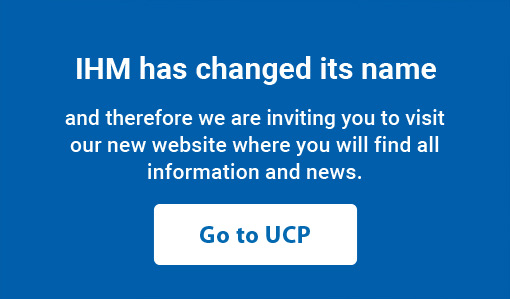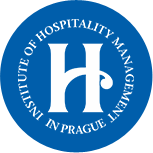FAQ
What is the Institute of Hospitality Management?
The Institute of Hospitality Management in Prague is a private non-university college that provides education at the Bachelor and Master's level.
What are the traditions of the school?
The Institute of Hospitality Management was established in 1999 by Act No. 111/98 Coll. on Higher education, which enabled the existence of private universities in the Czech Republic. Approval from the Ministry of Education, Youth and Sports was awarded July 28, 1999 and IHM became one of the three oldest private universities in the country.
How many students and graduates are there?
In 1999, there were about 76 students and today around 2,000. About two-thirds of the students study full-time and most are enrolled in Hospitality Management at the bachelor's level, and Hospitality and Spa Management at the master's level. The school currently has over 5,000 graduates.
Which courses are offered?
IHM currently offers four undergraduate and three graduate courses.
Undergraduate courses – Hospitality Management, Destination Management, Marketing Communication in the Service Industry, and Leisure Time Management.
Postgraduate courses - Hospitality and Spa Management, Destination Management and Marketing Communication.
The Bachelor degree course in Hospitality Management is also taught in English. The content of the course is consistent with course in the Czech language, however all instruction and testing is carried out in English. The requirement for admission to this programme is knowledge of the English language at a minimum B2 level. Knowledge is verified with an on-line test during admissions (grammar and listening), or with an official, internationally recognized certificate from TOEFL, FCE, CAE, or IELTS.
Are the courses accredited?
All courses offered are accredited by the Accreditation Commission of the Czech Republic. Study courses are re-accredited on a regular basis.
What subjects are taught there?
A detailed lists of subjects taught in the various fields of study are published in the Student Handbook. There are 6-7 subjects taught each semester, with most completed by an exam.
What are the entrance exams based on?
IHM has tried to maximize the openness of the admissions process. Therefore, there are no exams for admissions, only the administrative process for enrollment. Part of this process includes placement tests for languages, which are used to place students in groups according to their proven language level. The conditions for admission to IHM are stipulated in Act No. 111/98 Coll. – Completion of secondary education attested by a graduation certificate. International applicants are required to submit proof of their secondary education, which has been validated by the local authorities. Students should apply at the relevant local office, based on their place of residence in the country. In exceptional cases, the high school diploma with the certificate of validation will be accepted after the admissions process. Conditions for admission also include closing a study contract with IHM and submission of the tuition payment for the first semester of study.
How much will I pay for studies at IHM?
More about tuition HERE.
What is full-time study?
Full-time study consists of direct instruction. A semester lasts 13 weeks and is divided into two blocks (called modules). The fifth and sixth semesters are shorter so that students may complete their internships and prepare for the final examination. Full-time study assumes continuous student participation in lessons according to the set schedule. Lectures are optional, while discussion sections are mandatory; however, a maximum 20% absence rate from discussion sections is tolerated. Students in full-time study are awarded student status with all the benefits - lower taxes, state-funded health and social insurance, discounts on transport, etc.
What is part-time study?
Part-time, i.e. distance study, consists of direct instruction and individual preparation by students. Part-time study is intended for candidates who are already employed and want to complete their education. It is organized differently than full-time study. In each semester there are three weekly workshops, in which there is direct instruction. For part-time students, teachers are available during their office hours to consult with students about material covered in the subject or individual student work. Part-time students have the option to extend their studies free of charge for two semesters if they meet the other obligations (in particular the completion of key exams). Other study requirements are identical to the full-time study programme. The requirement for admission to part-time study is confirmation of at least 12 months of employment or self-employment (not part-time work or contract work). Internships from during the period of study are accepted for graduates of secondary hotel schools.
What is the scope of teaching?
Full-time instruction in each semester varies slightly, with an average range of between 20-25 hours a week. Teaching is organized according to a fixed schedule and depends on the capacity of the school. For discussion sections, however, there is a possibility for individual adaptation of lessons with the consent of the instructor. For part-time study the semester is divided into three week-long workshops with 90 hours taught, which covers 80% of lecture time in the full-time study programme. With the exception of foreign language classes, there are no discussion sections in the part-time study programme and preparation is done individually by the student. Most subjects have material in the IHM information system to support self-study for students.
How long will I study?
The standard length of study for the bachelor's degree is three years, with a maximum length of five years of study. The standard length of study for the master's degree is two years, with a maximum of four years. The maximum length of study applies to both students in the full-time and part-time programmes. If a student exceeds the maximum length of study, his studies will be terminated.
How is academic performance evaluated?
Most subjects are completed with an exam, with the exception of foreign languages where the exam is only in the last semester of study of the subject. There is a credit/no credit system for electives and internships. The ECTS (European Credit Transfer and Accumulation System) has been in effect at IHM since the 2005/2006 academic year; therefore individual subjects are assessed by the number of credits corresponding to the number of contact hours and the extent and demands of the subject including preparation. For the bachelor's degree, a student must earn 180 credits, for the master's degree 120 credits. In order to sit for an exam for subjects with a discussion section, students must fulfill the attendance requirement and complete the necessary work (tests, essay, etc.). Test and credit are valid for a period of six years.
What foreign languages are taught at the IHM?
IHM offers the following foreign languages: English, French, German, Russian and Spanish. Classes in Czech language are also offered for international students. For all students, 5 semesters of English is compulsory. Four semesters of the second language are required and students may choose which language to study. International students have Czech as their second language. Language teaching is organized in groups according to the level of knowledge achieved by the student. Teaching takes place in discussion groups for two hours each week. The Department of Languages offers students a variety of language courses. These courses, beyond the scope of regular studies, are paid separately and are opened when there is sufficient number of candidates.
Will I have to do an internship?
The curriculum for the bachelor’s degree programme includes two professional internships of four and six weeks. During the first year the internship is four weeks, and in the second year six weeks. Students in master's degree programme must complete a four-week internship. Students are free to choose the place and period of time in which they complete the internship. Students inform the appropriate department before doing the internship, and after completion, submit confirmation from the employer and a report about the work performed. Internships are mandatory and awarded the appropriate number of credits. Students working in relevant fields may request recognition of their employment to fulfill the internship requirement (especially for part-time students).
Can I participate in study abroad programmes?
IHM is actively involved in the international student mobility program Erasmus. It has long ranked second among private universities in both the drawing of EU subsidies and the number of students participating. Currently, IHM has agreements with 25 universities in thirteen countries (Great Britain, France, Germany, Spain, Portugal, Slovakia, Italy, Lithuania, Denmark, Finland, Poland, Estonia, and Turkey). Students selected usually study abroad for one-semester. Exams completed abroad may be recognized by IHM.
Students may also participate in the Erasmus work abroad program at one of the contracted partner hotels abroad (Greece, Spain).
Since its inception, IHM has been working with the Hotelschool in The Hague in Holland. Hotelschool The Hague offers IHM students two annual scholarships as part of the International Fast Track Programme. After successful completion the student earns a bachelor's degree from both IHM and Hotelschool The Hague.
Students are also offered the possibility to participate in the Norway grants programme. Students have the opportunity to study at universities in Norway, Iceland and Liechtenstein. IHM activities have expanded beyond the borders of Europe. Since 2008, IHM has had a contract for a double degree with Southern New Hampshire University in the U.S. and the Jakutský institute based in Moscow.
Are there any student organizations in the school?
IHM has long had an active student senate - a self-governing body of elected students. The Student Senate at IHM develops activities in a number of areas. It organizes lectures from professionals in the field or arranges for teachers to provide instruction for students beyond the normal range of study, as well as extracurricular activities (the regularly successful IHM party, etc.). In addition, the IHM Student Senate is an important partner of the school, regularly discussing and consulting on some of the issues of everyday student life. The Student Senate is also involved in ongoing monitoring of the quality of teaching, and participates in the preparation of student-based magazine Credit.
Where will I find materials for study?
Located in the IHM building is a basic library with a specialized book collection registered by the Ministry of Culture. The library provides literature related to the studied fields, foreign professional literature and specialist periodicals. The library also allows registered users to use interlibrary loan and allows students access to the EBSCO electronic information database.
The study room provides students a place to prepare for classes. It is also possible to purchase textbooks and other academic literature here. Students can also use the computer terminals with Internet access and can print and copy materials for classes.
The entire IHM building is connected to the Internet via Wi-Fi. In addition to traditional lecture classrooms, there are also specialized rooms, such as training kitchens, bars, computer labs, etc.
Where do I eat?
IHM offers meals in the school in-service restaurant, where students from the secondary hotel school gain experience as servers. Students have the benefit of the soup, one meal from Menu I or Menu II, special offers and big salads and short order meals. There are also two counters where students can buy snacks and drinks from the daily menu. On the ground floor of the school building is the RevPAR Café, on the first floor there is a Daily bar.
Does the school provide accommodation?
More information about accommodation HERE.

 APPLICATION FORM
APPLICATION FORM LOGIN TO IS
LOGIN TO IS iCanteen
iCanteen









